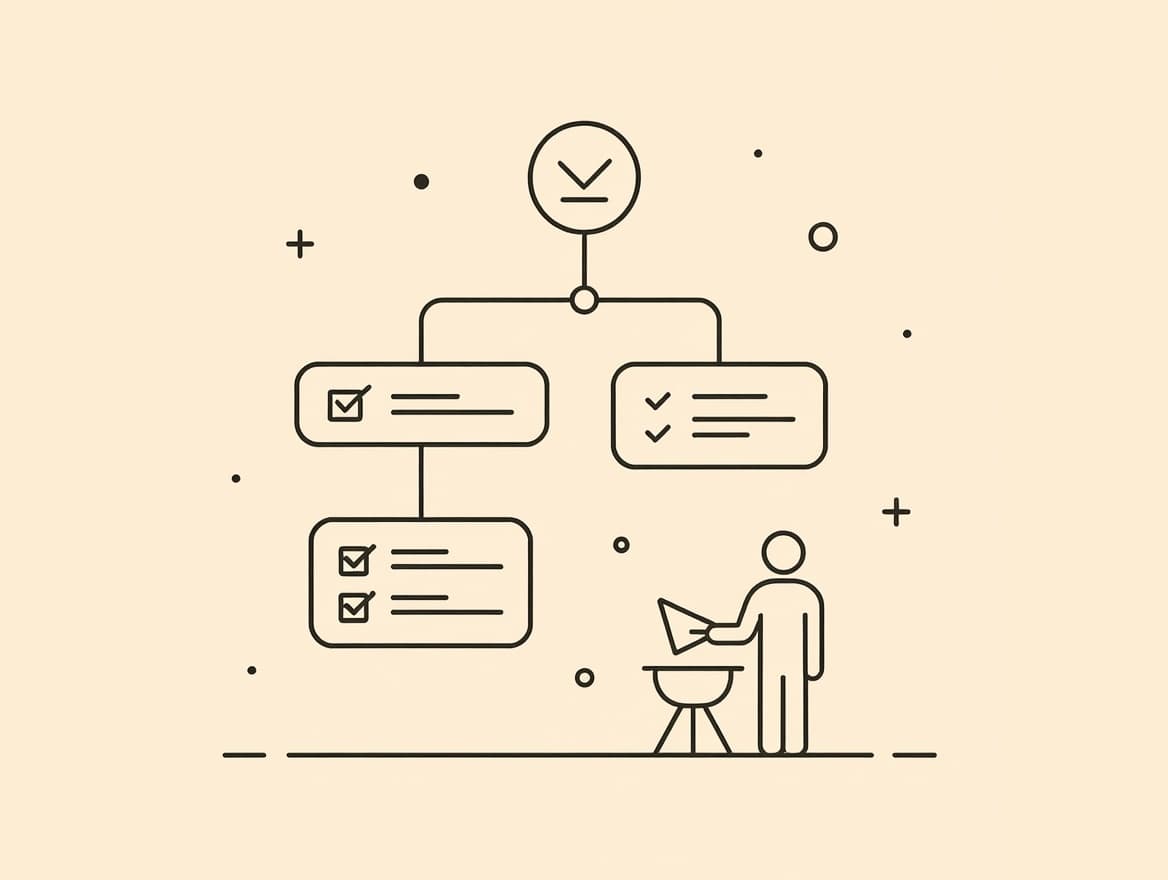CPT Code 97153 ABA: Complete 2025 Billing Guide for RBTs & BCBAs

When you're delivering ABA therapy as an RBT or BCBA, understanding CPT code 97153 ABA billing requirements can make the difference between smooth reimbursement and claim denials. This essential code represents adaptive behavior treatment delivered by technicians under BCBA supervision – and with enhanced documentation requirements taking effect throughout 2025, proper billing has never been more critical.
But here's the thing: accurate billing isn't just about getting paid. It's about protecting your practice from audits and maintaining the high standards your clients deserve.
What is CPT Code 97153 for ABA Therapy?
CPT code 97153 covers adaptive behavior treatment delivered by a behavior technician under BCBA supervision. Unlike other ABA codes, 97153 specifically applies when technicians implement structured treatment plans without making real-time protocol modifications.
Key characteristics of 97153 services:
- One-on-one direct therapy with the client
- Implementation of pre-designed BCBA treatment plans
- Structured skill-building and behavior reduction programs
- Billed in 15-minute increments
- Requires qualified RBT or behavior technician delivery
This code differs significantly from 97155, where BCBAs actively modify interventions during sessions. Understanding this distinction prevents costly billing errors and ensures you're capturing the right reimbursement for services delivered.
Essential Documentation Requirements for 97153
Enhanced ABA documentation requirements have been rolling out through 2025, mandating specific elements in every session note. Missing even one component can trigger claim denials or insurance audits.
Required documentation elements:
- Specific goals targeted during each therapy session
- Data collected on client responses to interventions
- Session duration and precise techniques implemented
- Treatment plan adherence confirmation from BCBA protocols
- Provider credentials and supervision structure documentation
Additional compliance requirements:
- Client consent for virtual services (when applicable)
- HIPAA-secure record maintenance
- Clear recording of who provided service, where, and delivery method
- Documentation of medical necessity alignment
Think of thorough documentation as your insurance policy. When audit season comes around (and it will), these detailed records become your strongest defense against claim reversals.
2025 Billing Updates and Compliance Changes
The ABA billing landscape has evolved significantly in 2025, with updated provider enrollment requirements and enhanced documentation standards taking precedence across major payers.
Critical 2025 updates affecting adaptive behavior treatment 97153:
- Enhanced supervision documentation requirements
- Strengthened medical necessity criteria alignment
- More precise usage guidelines for code selection
- Increased scrutiny on billing accuracy and compliance
Billing structure requirements:
- Services billed in 15-minute increments only
- Date-of-service accuracy mandatory
- Total units must match actual therapy time delivered
- Pre-authorization required per payer-specific policies
These changes reflect the industry's push toward greater accountability. The question isn't whether your practice will face increased scrutiny – it's whether you'll be ready when it happens.
Insurance ABA Billing Audit Protection
Inaccurate coding represents a major cause of ABA claim denials, making audit preparation essential for practice sustainability. Here's how smart practices are staying ahead:
Audit protection best practices:
- Staff training: Regular sessions on current CPT updates and documentation standards
- Documentation reviews: Quality checks before every claim submission
- System optimization: Billing software with real-time compliance alerts
- Supervision tracking: Detailed BCBA oversight records
Common audit triggers to avoid:
- Missing or incomplete session documentation
- Incorrect CPT code selection between 97153 and 97155
- Inadequate supervision documentation
- Treatment plan alignment gaps
- Late claim submissions beyond filing deadlines
The practices that thrive aren't necessarily the ones that never make mistakes – they're the ones that catch and correct errors before they become problems.
Co-signature Requirements and Best Practices
Some payers now require co-signature protocols for ABA session notes, adding another compliance layer for 97153 services. While requirements vary by payer, preparation is key.
Co-signature scenarios:
- BCBA co-signature on all RBT session notes
- Parent/guardian signatures for daily services
- Qualified Healthcare Professional oversight documentation
- Electronic signature compliance with HIPAA requirements
Always verify co-signature requirements with each insurance provider before service delivery begins. What works for one payer might not satisfy another's requirements.
Maximizing Reimbursement Success
Optimizing your 97153 documentation tips implementation requires systematic attention to both quality and compliance protocols.
Reimbursement optimization checklist:
- ✅ Confirm pre-authorization requirements with each payer
- ✅ Document comprehensive client response data
- ✅ Ensure proper BCBA supervision structure
- ✅ Align all interventions with approved treatment plans
- ✅ Maintain detailed service logs (provider, location, method)
- ✅ Submit claims within payer filing deadlines
Tools for documentation efficiency:
Consider using compliant ABA session note generators to streamline documentation while maintaining audit-ready standards. Automated systems can help ensure consistency and reduce documentation time significantly, freeing you to focus on what matters most – your clients' progress.
Plus, having HIPAA-compliant documentation systems means you're protecting both your practice and your clients' sensitive information.
FAQs About CPT Code 97153
What's the difference between 97153 and other ABA codes? CPT 97153 specifically covers technician-delivered therapy following established protocols, while 97155 involves real-time BCBA intervention modifications and 97151 covers initial assessments.
How many units can I bill per day for 97153? Billing depends on actual service time delivered in 15-minute increments. For example, 2.5 hours of direct therapy equals 10 units of 97153.
Do I need real-time BCBA supervision for 97153? No, 97153 requires BCBA oversight and treatment plan creation, but real-time supervision during sessions isn't mandatory.
What happens if my 97153 documentation is incomplete? Incomplete documentation can result in claim denials, payment delays, audit triggers, and potential compliance violations with payer policies.
Can I bill 97153 for group therapy sessions? No, CPT 97153 specifically covers one-on-one adaptive behavior treatment. Group sessions require different CPT codes.
Protecting Your Practice with Proper 97153 Documentation
Mastering CPT code 97153 ABA billing isn't just about reimbursement – it's about protecting your practice, ensuring client progress tracking, and maintaining professional standards. With 2025's enhanced requirements, thorough documentation has become your strongest defense against audits and claim denials.
Don't wait until an audit notice arrives to discover gaps in your documentation. Start implementing these compliance strategies today to streamline your billing process and maximize reimbursement success.
Ready to simplify your ABA documentation while staying audit-ready? Start creating compliant session notes that meet all 97153 requirements and keep your practice protected.
Popular in CPT Codes & Billing
- 1
2025 ABA Billing Updates: Essential Guide for RBTs
5,5428 min read - 2
CPT Code 97153: Complete Guide for RBTs
3,9959 min read - 3
CPT 97155 vs 97156 Documentation: Key Differences for BCBAs
2,9689 min read - 4
BCBA Initial Authorization Checklist: Simplify ABA Approvals
1,7117 min read - 5
BCBA Protocol Modification Documentation: CPT 97155 Guide
1,4899 min read
Popular in CPT Codes & Billing
- 1
2025 ABA Billing Updates: Essential Guide for RBTs
5,5428 min read - 2
CPT Code 97153: Complete Guide for RBTs
3,9959 min read - 3
CPT 97155 vs 97156 Documentation: Key Differences for BCBAs
2,9689 min read - 4
BCBA Initial Authorization Checklist: Simplify ABA Approvals
1,7117 min read - 5
BCBA Protocol Modification Documentation: CPT 97155 Guide
1,4899 min read
Related Resources
Explore more helpful content on similar topics

Master ABA CPT Codes 97153-97158: Avoid Costly Audit Findings in 2025
Learn how to navigate ABA therapy CPT codes 97153–97158 for compliant billing, audit-proof documentation, and maximizing 2025 ABA insurance reimbursements.

2025 ABA Billing Updates: Essential Guide for RBTs
Discover 2025 ABA billing updates for RBTs, including revised CPT codes, telehealth billing ABA guidelines, and CMS changes. Learn essential RBT billing requirements to avoid denials, ensure compliance, and maximize reimbursements in adaptive behavior therapy.

Master ABA Service Reduction Documentation for BCBAs
Master ABA service reduction documentation as a BCBA. Learn steps for justifying service fading, ensuring ethical compliance, securing payer approval, and collecting data to safely reduce hours without risks.